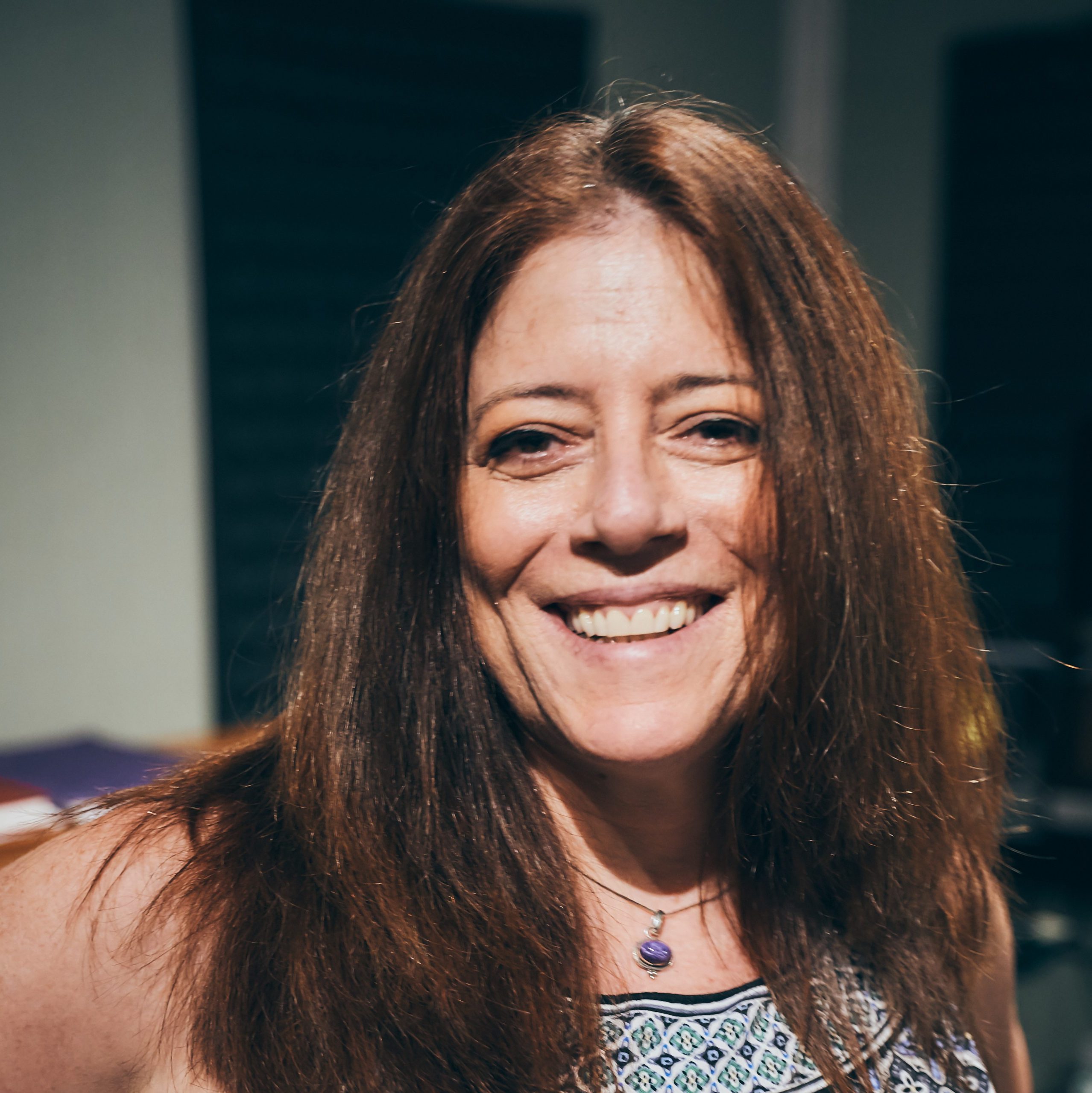[vc_single_image source=”featured_image” img_size=”full”]
It was a hot day in Los Angeles. The dog-loving junkie had shown up for community service as a punitive measure for earlier misdemeanors. She arrived and saw trucks with kennels attached to them. Inside were dogs, panting heavily, trying to resist the overwhelming heat. This wouldn’t do. With her lab by her side, she unlocked the cages and let the dogs out. She led them to a nearby fountain and shouted “You’re free! You’re free!” as they splashed around, cooling off from the immense heat. A security guard yelled at her to get out of the fountain. As she started to return the dogs to their cages she heard the sound of a gun being cocked, followed by “GET ON THE GROUND!” The dogs, it turns out, were police dogs in training and she was about to be charged with Grand Theft Dog… Welcome to the life of Laura Bagish, Beit T’Shuvah’s Choir Director.
It was clear to Laura from a young age that she was destined to become an addict. Born in Los Angeles, raised in Silverlake by two musicians, she remembers how much she loved spinning on monkey bars to get that dizzying buzz. Laura attended a “hippie” school where she experimented with cigarettes and weed at 9 years old and acid at 12. By 13, she had fallen in love with a man twice her age and was married to him by the time she was 17. “I kind of skipped over my whole adolescence. I was still partying and stuff, but I didn’t have my own life. I was a housewife,” she recalls. Her marriage was a rollercoaster for three years before her divorce at 20 years old. “My husband turned me onto white cross tops. We’d eat them like candy all day. They were like diet pills, but they were pure speed and then we could get pure methamphetamine. I just loved that feeling, because I was depressed. My mom committed suicide and was bipolar. So, I suffer from depression and I think that’s what I did to self medicate,” she reflects.
Throughout her childhood, her marriage and her divorce, music was, well, instrumental in Laura’s life. She had music lessons from a young age, took choir in high school, taught herself piano by age 20 and would perform acapella at renaissance faires for many years. Her father had warned her against trying to pursue music as a full-time career, so Laura kept that part of her as part of her nightlife and worked all kinds of jobs throughout the days.
After her divorce, Laura experienced a “second childhood” and relished her return to an adolescent lifestyle. By the time she was 30, her functional addict days were on shaky ground as she transitioned from popping diet pills to smoking meth. “That’s when everything changed… I called my mom one day and said, ‘I’m a drug addict. I can’t function.’ So, she left her job and came to my house. There was dog shit under the dining room table I hadn’t noticed. You know, the whole tweaker thing. She told me ‘give me a chance to help you get clean or go to rehab.’ So, I gave her my dope and slept forever and woke up to a clean house,” she remembers.
From this moment of mother and daughter bonding, tragedy slowly emerged. Laura’s mom had dedicated herself to getting Laura off the speed and lost her job in the process. Laura’s parent’s house was destroyed in the ‘94 earthquake. Family members passed away. Her mom fell into a deep depression and before long they were both out on the town, playing piano in bars and partying together. “We took a manic trip together, then I saw the crash,” Laura says. Her mom was thinking about suicide and so they put her in a hospital. Sadly, that wouldn’t keep Laura’s mom from following through. Laura blamed herself for what happened to her mother and her addiction crescendoed into a full cacophony of bad decisions.
Years passed. Laura was living out of her car with her dog. She had numerous run-ins with the police and eventually, the Grand Theft Dog incident happened. “It would have been kidnapping of an officer if the dogs had been fully trained,” says Laura with a laugh. While incarcerated, Laura had reached out to Beit T’Shuvah. She had heard of it when she was living out of her car and had a chance encounter with Pauline Ledeen (Harriet’s mentor). Pauline had told Laura of Beit T’Shuvah, and Laura had responded that she wasn’t a drug addict but just down on her luck. Laura’s desperation was stronger than her denial when she finally ended up in jail. Beit T’Shuvah responded with a visit from Carrie Newman and in 2003 Laura walked through the doors that would forever change her life.
When Laura arrived, she and a few other residents started playing music for fun. Beit T’Shuvah took notice and soon, Beit T’Shuvah’s music program was born. “It started with a jam. There were a bunch of musicians here at the same time. Beit T’Shuvah saw that and they really wanted music. It organically happened, and we started playing Friday night services,” she recalls.
Sixteen years later, Laura is still here. She has come a long way since her days of homelessness and run-ins with the police. Today she is a pillar of Beit T’Shuvah as its Choir Director and champion of helping lost souls find their way back to sanity with the help of music. “What keeps me here is how I see people change through music. Residents will be miserable and dope sick when they first walk in, and then I’ll see them at services dancing. When people come in here they are raw. The music connects them to their past. It connects them to love and possibility. It breaks down that wall,” she explains. For Laura, music is the language of connection. “Music has always been in my life. It’s my therapy. It’s my God place. It’s an outlet for my emotions. Sometimes when I look down at my hands while I’m playing, I see my mother’s hands,” she says with a smile.
Laura will be directing the choir this year for the High Holiday services. She finds joy in connecting so many moving parts to create a single voice. “You have to be aware of what’s going on with so many different things. You’re listening to each part, have to bring in each part… it’s a gift,” she says with excitement. “This year people should expect to hear powerful performances and music that will help the congregation connect with God.”
Laura’s gift for music, her passion for teaching and her dedication to recovery are all ingredients in the sauce that makes Beit T’Shuvah what it is. Thank you, Laura, for all that you bring to The House of Return.

